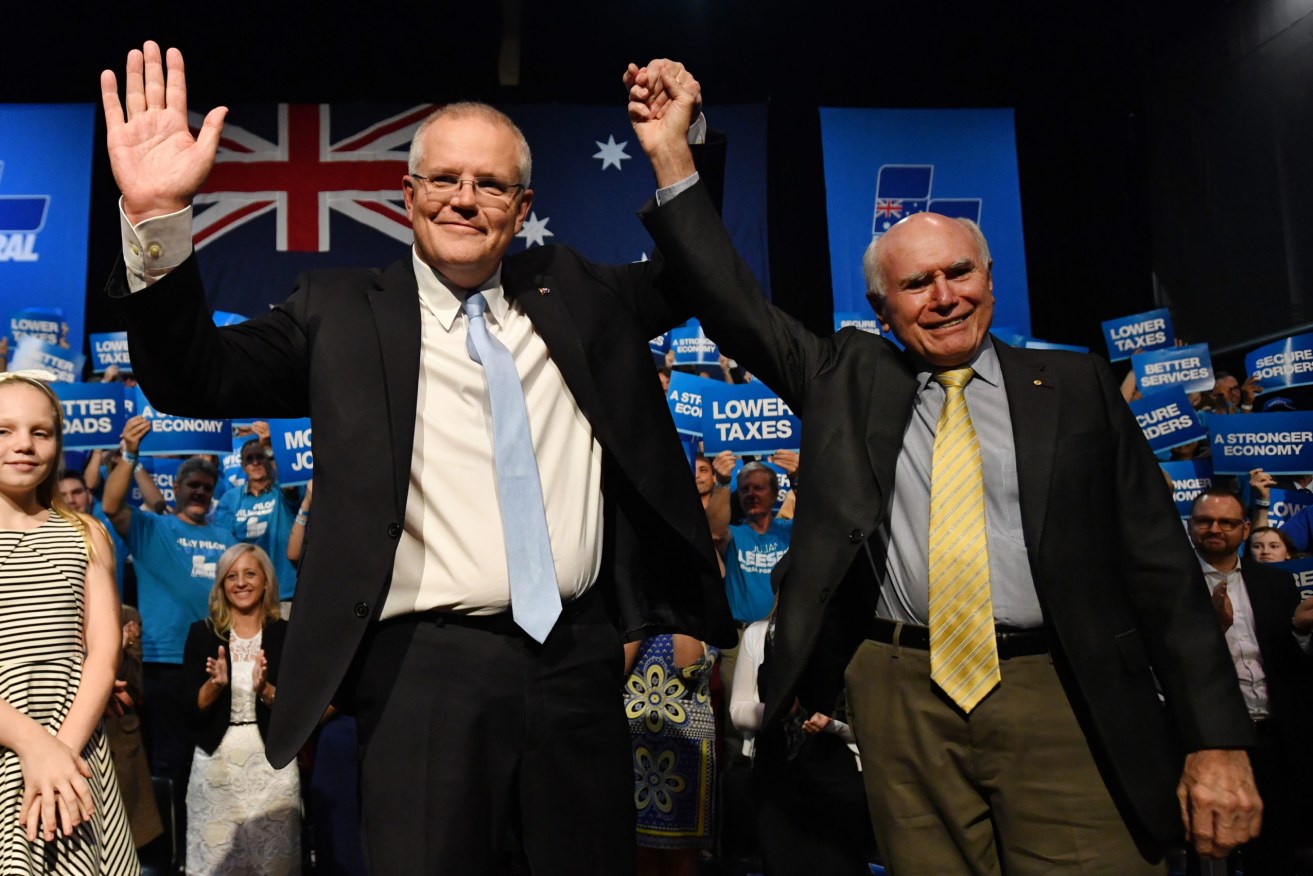Flawed political polls have underestimated Coalition support for a decade
Scott Morrison thanked the “quiet Australians” for his 2019 election win. It turns out the pollsters just weren’t hearing them.

Prime Minister Scott Morrison, pictured with John Howard after his 2019 election win. (Photo: AAP Image/Mick Tsikas)
Published polls did not predict the Coalition’s 2019 election win coming, leading to media reports predicting Bill Shorten would lead Labor back to power. News Corp publications even warned of Labor having won 55 Newspolls in a row.
Yet the Coalition went on to win the election with 51.5 per cent of the two-party preferred (TPP) vote compared to Labor with 48.5 per cent – almost the mirror opposite of what various polls had predicted.
Amid the fallout, industry body the Association of Market and Social Research Organisations (AMSRO) commissioned an independent review that found there was not so much a “polling miss” – for example, not picking up on a late swing – but a “polling failure”.
The review, released this week, conceded the polls had been based on unrepresentative and inadequately adjusted samples that left out some Coalition supporters. Some of this was due to companies struggling to change practices as people switched from landlines to mobile phones.
“The polls were likely to have been skewed towards the more politically engaged and better-educated voters with this bias not corrected,” the review found.
“As a result, the polls over-represented Labor voters. Such a skew has been evident in recent election cycles, with 17 of the 25 final poll results since 2010 overestimating TPP support for Labor.
“This finding stands independent of methodology because even though the methods used by the pollsters differ they share a common difficulty in struggling to establish contact with and gain the cooperation of a representative sample of voters.”
Similar findings were made overseas after the 2015 UK and 2016 US elections, and in Australia compounded by media reporting that “failed to consistently meet the basic disclosure guidelines for editors and journalists”.
AMSRO board member Craig Young said the Australian Polling Council had since been established with objectives that aligned with the recommendations from the review.
Young, who commissioned the review as past AMSRO president, said he hoped the industry could continue to “improve the accuracy – and public perceptions of the accuracy – of election and political polling in Australia”.
“Election and political polling are consequential and influential and play an important role in the democratic process,” Young said today.
The 2019 polling failure was not only an embarrassment for the companies involved, but may have contributed to pre-election machinations by political parties – including Morrison taking over from Malcolm Turnbull as Liberal Party leader and prime minister.
“Among politicians, across the media, and among voters, political polls can create expectations, especially about which party or parties are likely to win, and expectations can drive a range of actions – changes in party leadership, resignations in advance of an election, closer policy scrutiny of a party by the media, and activism among the voting public,” the review acknowledged.
“Businesses, the public service, and non-government organisations may also be affected by the polls, their actions or contingency plans being adjusted or maintained depending on what the polls appear to be telling them – more so when all the polls, or the most reputable of them, seem to be pointing in the same direction, and remain unchanged over long periods.”












